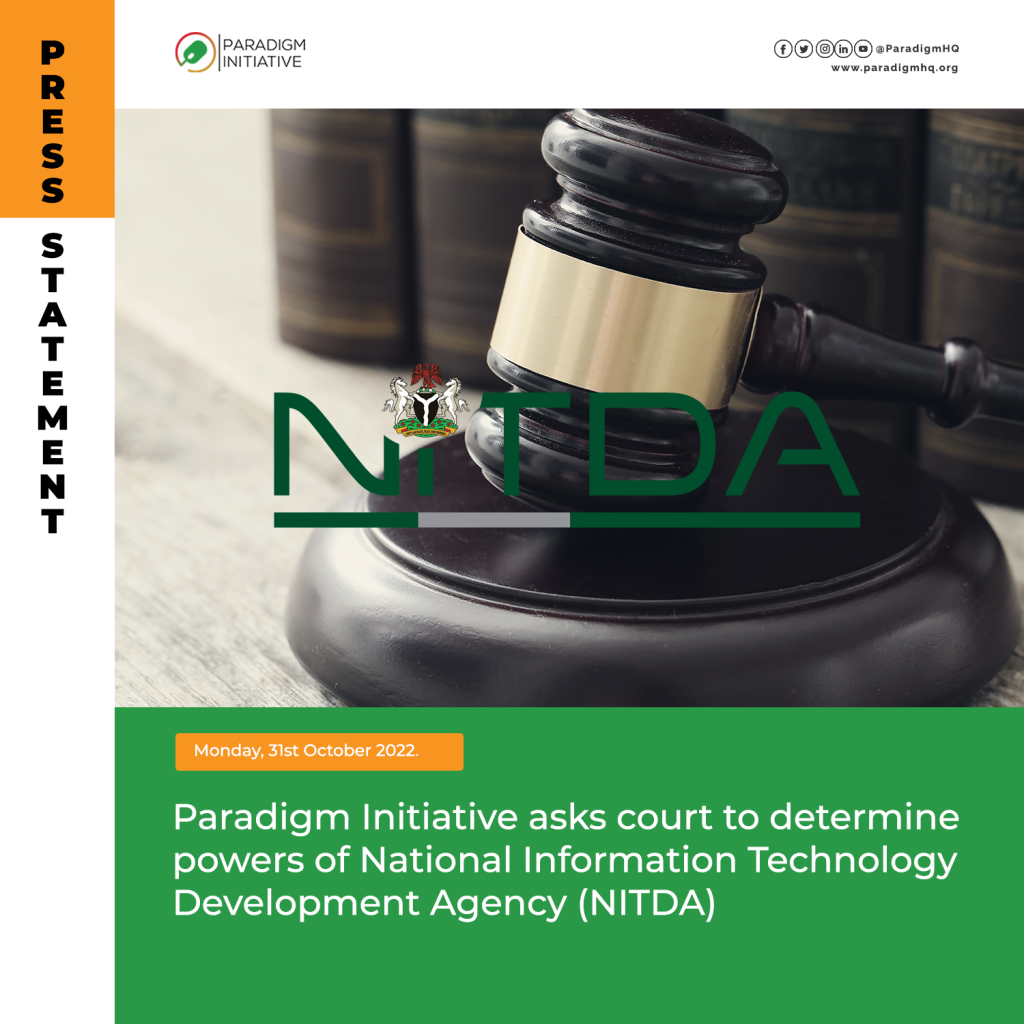Pan-African digital rights agency, Paradigm Initiative files lawsuit against NITDA

Paradigm Initiative (PIN), an agency connecting youths to digital opportunities as well as preserving digital rights, has petitioned the National Information Technology Development Agency (NITDA) in court. This is following a series of back-and-forth by PIN to ensure the updated code endorsed by the IT agency is re-evaluated.
NITDA, in collaboration with the Nigerian Communications Commission (NCC) and the Nigerian Broadcasting Commission (NBC) had on June 13, 2022 issued the draft Code of Practice for Interactive Computer Service Platforms/Internet Intermediaries (“the Code”). This is meant to regulate the digital ecosystem and platforms such as Twitter, Facebook, WhatsApp, Instagram, Google, and TikTok for Nigerians and non-Nigerians living in the country.
According to a statement seen by The Ouut: “The growing number of people with access to the internet and the increasing usage of digital technology in business, healthcare, commerce, banking, and other parts of the economy has created the need to develop more laws and policies around these issues.”
Netizens are particularly skeptical about regulations by the government since it served as a deciding party to the Twitter ban in 2021. The government also sponsored the 2019 Hate Speech Bill 2019 which never saw its passage into law. However, the internet has served as more than just a platform for communication but even profit-ventured for businesses. Deeming the code as excessive and ineffective, the digital rights agency have requested that the Federal High Court in Abuja determine the following questions:
- Whether the National Information Technology Development Agency (NITDA) has the powers to propose or formulate any regulation, framework or guideline which directs or purports to direct, mandate or purport to mandate, dictates or purports to dictate the protection of personal data in Nigeria.
- Whether the National Information Technology Development Agency (NITDA) possesses the powers to propose or formulate any regulation, framework and guideline which directs or purports to direct, mandates or purports to mandate, dictates or purports to dictate the issuance and enforcement of sanctions for non-compliance thereto.
“These questions are important for existing and future policy and regulation formulation as they ensure that responses to emerging threats are meticulous and effective. Actions mandated by laws are legitimized by the people and have contingencies to possible issues. Any agency acting beyond legal authority puts the people and the aspect of governance under their mandate at risk.”
To further inform of the powers of NITDA, the statement emphasised that the regulatory agency was created and exists under the law.
“This suit is without prejudice to NITDA’s ongoing attempt to amend its laws to give it additional powers and to legitimize actions it already undertook within its existing mandate.
It is our prerogative to see the rule of law adhered to especially by regulatory agencies of government as we await the determination of the suit.”